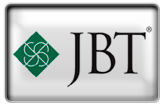
To orient you in precious metals and precious metal trading, we have put together a glossary to enable you to better understand the many terms used.
BACKWARDATION (market): This is when the spot price of a metal exceeds the future price occurring in rare and unusual circumstances.
BACKWARDATION (physical): This refers to the differential between the sponge price of a precious metal coming out of refining and the metallic form, usually in sheet and based upon the price FOB Zurich.
BID: The price that someone wants to buy at, or is “bidding” to buy. At any time a market is open and trading there is someone biding to buy at some price below what another person is willing to sell at. When they agree, there is a trade.
BROWN AND SHARP (B&S) GUAGE: A numerical guage of thickness often employed by jewelers and artisans with higher numbers corresponding to thinner thickness, e.g. B&S 38 equals .004" or .1 mm, whereas, B&S 14 equals .097" and about 2.5 mm.
BULLION COIN: A vehicle issued by a government whose value is determined solely by the value of the precious metals that is in it plus or minus very small premiums and discounts that reflect fabrication, trading costs and market dynamics.
BULLION BAR: A bar shaped vehicle (usually rectangular) issued by a private mint or trading company the value of which is determined solely by the value of the metal that is in it plus or minus very small premiums or discounts that reflect fabrication, trading costs and market dynamics.
BULLION MEDALLION: A round shaped vehicle issued by a private mint (not a government) whose value is solely determined by the value of the metal that is in it plus or minus very small premiums or discounts that reflect fabrication and trading costs.
CONTANGO: The money value of the time differential between the current or spot price of a precious metal and the future price of the metal as reflected in the contract’s expiration (due) date. This differential general reflects the cost of borrowing money for that period.
DISCOUNT: Some amount, whether a percentage or specific dollar figure below the current market price for the sale/purchase of a particular vehicle. This will reflect dealer handling charges and market dynamics.
EXCHANGE FOR PHYSICAL (EFP): An exchange between two parties one of whom has an amount of physical metal that is hedge on a futures exchange and is delivering the metal to the second party. In conjunction with the first party delivering the physical metal to the second, he arranges for the transfer of the contracts hedging the physical metal directly to the second party. This process eliminates the need for the first party to purchase back the hedged contracts and the second party to sell contracts to hedge the physical metal he is taking possession of.
EXCHANGE TRADED FUND (ETF): A fund listed on a major stock exchange in which each share represents a specific amount (e.g. 1/10 oz. t) of a specific precious metal (gold, silver, platinum, palladium, etc.). The fund maintains 100% of the outstanding shares in physical metal in a secure storage facility. This arrangement allows for both the owning of physical metal (albeit held by somebody else) and the high degree of liquidity that shares in a stock listed on a major exchange affords.
FORWARD SALE: This is a sale of a specified amount of precious metals for delivery at a specified time in the future (usually rather large amounts) between two parties, principal to principal.
FUTURES CONTRACT: When buying and selling precious metals on the futures market, the metal is traded in set amounts (Gold 100 oz. t.; Silver 5,000 oz. t.; Platinum 50 oz. t.; Palladium 100 oz.t.). This unit is called a contract. It is the amount one "contracts" to buy or sell.
FUTURES MARKET: A market that allows one to the buy and sell a fixed amount of metal with a closure date at a specified date in the future. The seller determines the specific date within the specified month to deliver the physical metal. These specified amounts or “contracts” can be bought and sold virtually any time via the markets, Nymex, Globex and Tocom are primary examples.
KILOGRAM OR KILO: 1000 grams, 31.103 oz troy, 2.2 pounds
GRAIN:1/480 of a troy ounce or .0648 grams.
GLOBEX: The electronic extension of NYMEX. During normal trading days, it trades virtually around the clock following the markets as they open and close (New York, Sidney, Hong Kong, Tokyo, Zurich, London). It closes down in the late afternoon on Fridays and opens back up with Sidney on Monday.
ISSUE DATE: The day after Notice Day when notice is given to the buyer that he must provide good funds for the metal by the next day. This procedure applies to contract settlement on NyMex/Globex. ToCom's procedure differs with settlement always occurring on the last day of the contract month.
LIMITED LIQUIDITY: This is a term we have devised at Marco Polo to denote medallions or bars that are usually not Nymex, Tocom or LBMA acceptable but are widely known in precious metals circles and generally accepted simply on sight with no other tests or special procedures.
LONDON FIXES: These are set agreed upon buy/sell prices without bid/offer spreads. It is set every trading day in London by several of the world’s largest traders by pooling all their buy and sell orders and negotiating one set price that all the buyers and sellers agree to trade at. There are two gold, platinum and palladium fixes every market day. The first set are called either the AM or 1st fixes. The second set are called either the PM or 2nd fixes. There is only one silver fix each day which is an AM fix.
LONDON BULLION MARKET ASSOCIATION (LBMA): An association of market makers with standard trading procedures. To be a full member you must be a world-wide market maker. It is the largest association of forward and physical traders of precious metals in the world.
MARGINAL LIQUIDITY: This is a term we have devised at Marco Polo to denote medallions or bars that are not Nymex, Tocom or LBMA acceptable and have limited to virtually no familiarity in precious metals circles and hence will probably not be accepted simply on sight with no other tests or special procedures by most dealers.
NOTICE DAY: The day within the delivery month that the seller of a contract must have the metal physically in a market storage facility and gives notices that he is turning the metal over to the buyer and expects payment two days later. This procedure applied to contract settlement on NyMex/Globex. ToCom's procedure differs with settlement always occuring on the last day of the contract month.
NYMEX: The New York Mercantile Exchange is one of the largest precious metals futures exchanges in the world. Nymex acceptability means that a vehicle with this distinction can be used to fulfill the physical settlement requirements for Nymex. If a contract expires and the owner wants to take delivery in physical metal, it can only be in Nymex acceptable vehicles.
OFFER: The price that someone is willing (offering) to sell at. At any time a market is open and trading there is someone offering to sell above what another is willing to buy at. When they agree, there is a trade.
OUNCE: A common or avoirdupois ounce is the ounce everyone in the U.S.A. is normally familiar with and is used to weigh everything from produce to letters. One avoirdupois ounce equals .9115 troy ounces or 28.35 grams.
OUNCE TROY (OZ. T.): The ounce weight that is universally (worldwide) applied to precious metals whenever "ounces" is used as a measure of weight. Even though, it is often used without specifying "troy", it is always intended. An ounce troy ounce equals 1.0971 avoirdupois ounces or 31.103 grams.
PAYMENT DATE: The day after Issue Date when the buyer provides payment in good funds to the seller and he receives the warrants for his purchase. This procedure applies to contracts settled on NyMex/Globex. ToCom's procedure differs with settlement always occurring on the last day of the contract month.
PENNYWEIGHT (DWT): 1/20 of a troy ounce or 1.555 grams.
PREMIUM: Some amount, whether a percentage or a specific dollar figure, above the current market price of the metal for the purchase of a particular vehicle. This reflects the costs of fabrication, distributor costs, wholesaler costs and market supply and demand dynamics.
SPOT MARKET: This refers to the current, at the moment, price of a precious metal on an open and actively traded major precious maretals market.
TOCOM: The Tokyo Commodities Exchange is another one of the world's largest precious metals futures exchanges. Tocom acceptability means that a vehicle with this distinction can be used to fulfill the physical settlement requirements of Tocom. If a contract expires and the owner wants to take delivery in physical metal it will be only in Tocom acceptable vehicles.
UNIVERSAL LIQUIDITY: This is a term we have devised at Marco Polo to denote a coin or bar that is accepted word wide and any serious dealer in precious metals will buy or sell (trade) simply on sight with no other tests or special procedures required. These vehicles are almost always, Nymex, Tocom and LBMA acceptable.
VEHICLE: A particular type of precious metal coin, bar or medallion such as a U.S. Eagle, Canadian Maple leaf, PAMP bar, Credit Suisse Bar, Engelhard Prospector medallion, etc.
WARRANT: The document obtained when possession is actually taken of a futures contract. It is legal title to the bar that contains that amount of metal. There is one for each bar, and, should the metal actually be taken from the market's storage facility, it must be presented and is exchanged when actual possession is taken.


